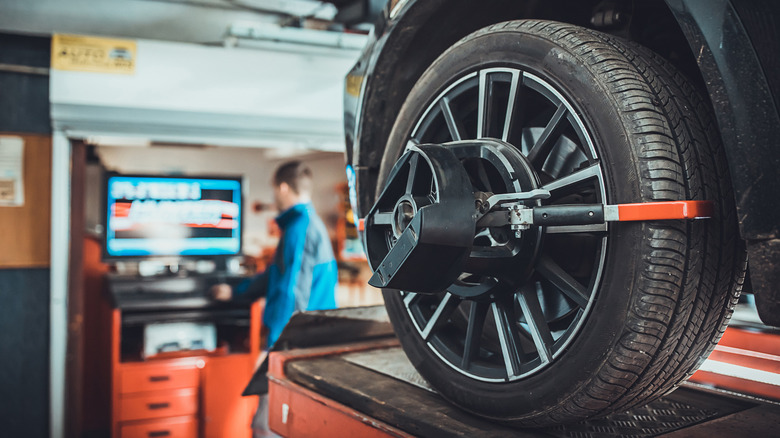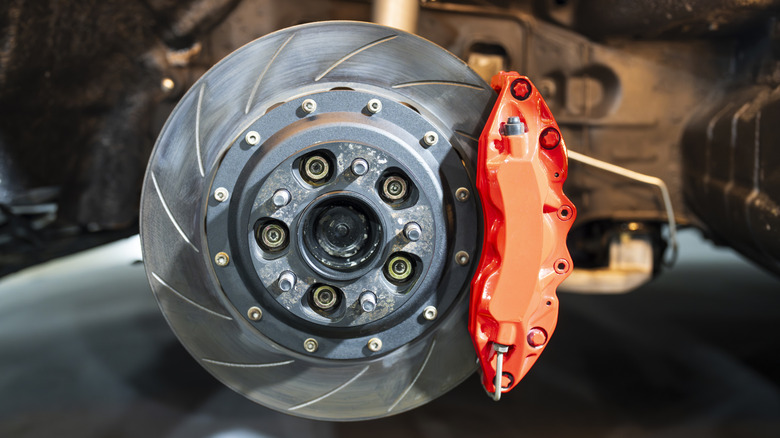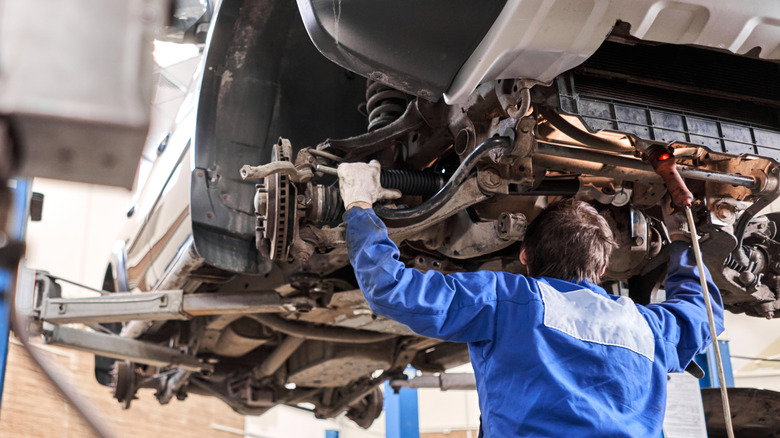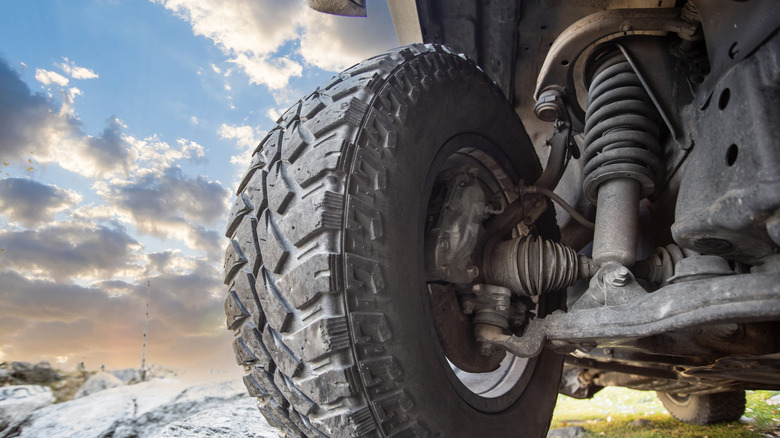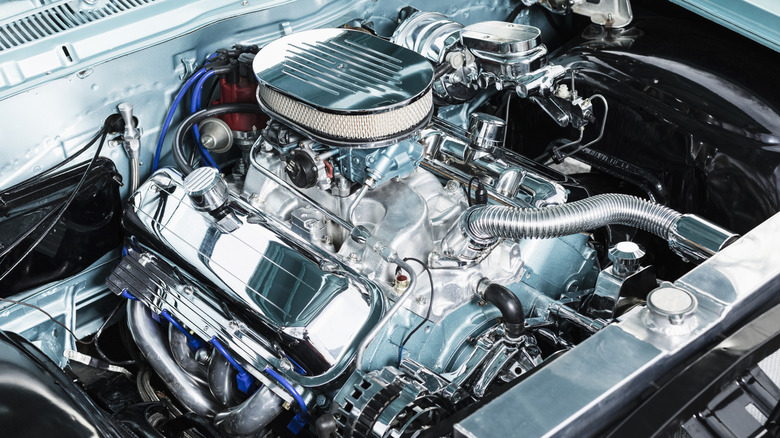5 Reasons Your Steering Wheel Is Shaking While Driving At Higher Speeds
There can be a number of reasons why your steering wheel may be shaking while you are driving at higher speeds. Nearly all of these (sometimes the problem is just poorly maintained roads in your area) have to do with a problem in some system of your vehicle. They all have a cause and a solution that either you or your mechanic can figure out and resolve.
If the cause of your shaking steering wheel is due to an issue within your vehicle, you should definitely not ignore it and hope that it will go away. Most problems that are related to this phenomenon are unlikely to stop. In fact, they are very likely to get worse and since they happen while driving at higher speeds, they could potentially cause serious damage to your car or danger to the people who are riding in it with you.
Let's take a look at some of the causes of a shaking steering wheel that may occur while driving at higher speeds. This should be a cause for concern and may require a visit to your mechanic to address any safety-related issues. And if your car is shaking during acceleration, here's what you need to check.
Tire and/or wheel problems
Problems with your tires and wheels can be the most common causes of why your steering wheel is shaking while driving at higher speeds. Primary among these is out-of-balance tires, which are very likely to cause steering wheel vibrations at higher speeds, as well as uneven tire wear. The first thing to do when dealing with this issue is to check that your tires are properly inflated, since tires with low air pressure can cause your steering wheel to shake. While doing this, check your tires for uneven wear, flat spots, or bulges in the sidewalls, which could cause the shaking and require a tire replacement where necessary. If the steering wheel shaking continues with the recommended tire pressures and the tires look fine, you should have a mechanic or tire shop rebalance your wheels. Here are 21 major tire brands of 2025, ranked from worst to best.
Your wheels can also be the cause of your shaking higher-speed steering wheel. The bolts that hold your wheels onto your vehicle can work their way loose, with the loosened wheels causing a severe vibration that could result in one or more wheels separating from your vehicle at high speed. While checking your tire pressures, grab each tire and try to shake it back and forth on the wheel hub — if you can feel any in-and-out movement, have your wheel bolts tightened immediately.
Brake problems
Braking-related issues that cause your steering wheel to shake will normally be noticed when you brake at high speeds. Because the condition of your braking system's rotors and brake pads are essential to your driving safety, any defects should be dealt with immediately once you notice them.
Your brake rotors are circular discs attached to each of your wheels that rotate along with the wheels. When you apply the brakes, the brake fluid in the system squeezes the brake pads against the spinning rotors. The friction created by the brake pads converts your car's kinetic energy into heat as the braking system slows and stops your car. Due to uneven wear of the rotors, or rotor warping due to the high levels of heat generated by your braking system, issues with your brake rotors, particularly the ones on the front wheels, are very likely to be felt through your steering wheel. This would be a good time to consult your local mechanic and have the problem fixed before it gets worse and potentially compromises your car's ability to stop.
In the event that the rotors are not at fault, the problem may lie with your brake pads, or the brake calipers that hold the pads may be sticking and causing the pads to rub against the rotors when they shouldn't, causing your steering wheel to shake. This can also cause increased brake pad wear, along with reduced fuel economy and other negative side effects. Here are 5 signs your brake pads need to be replaced ASAP.
Suspension problems
Your car's front and rear suspensions are complex mechanical systems that are responsible for its ride and handling qualities. Over time, the components of your suspension can wear and cause problems that may result in your steering wheel shaking while driving at higher speeds. The parts in your suspension that can wear include the shock absorbers or struts, the ball joints, the tie rod ends, the bushings, and more.
In addition to worn suspension components, your car's suspension is subject to damage from accidents, road debris, and parking mishaps. This type of damage can also lead to shaking or vibrations that you feel through the steering wheel. Worn or damaged suspension parts can also cause your wheels to go out of alignment, which can lead to steering wheel shaking as well as unevenly worn tires, which can happen if the situation is ignored for too long a time. If you should experience this situation, consulting a mechanic promptly should resolve your suspension-related problems. Here are some simple checks that will maintain your car's suspension.
Steering problems
Your steering system can also be the source of the problem when your steering wheel is shaking while driving at higher speeds. Certain parts of your steering system, including the steering rack, could be worn out or damaged, directly causing your steering wheel to shake. Your mechanic can thoroughly inspect and diagnose your car's steering system for any damage or wear, then repair, replace or adjust the system as needed.
Another potential cause of steering-related issues can sometimes be traced to your car's power steering system, which can either be hydraulically or electrically powered. While a loss of power steering does not necessarily produce shaking, it can make the steering wheel very difficult to turn. If your power steering is hydraulically powered, you could be experiencing a fluid leak, low fluid level, a problem with the belt that drives your power steering pump, or a pump failure. With electric power steering, the problem could potentially be traced to a battery failure, alternator issue, or a faulty steering position sensor. Here are 4 signs you need to service your power steering system.
Other problems
In addition to all of these potential causes of why your steering wheel could be shaking while driving at higher speeds, there are more to consider. Your engine has a large number of moving parts, many of which can be the cause of vibrations or can generate that shaking sensation at higher speeds through the steering when there are engine problems.
Some causes of this in your engine include spark plugs or spark plug wires that have gone bad or are misfiring, motor mounts that have worn out or cracked, a loose air intake, or a faulty fuel pump or fuel injector. Your mechanic can sort these issues out for you. A too-low level of transmission fluid can also cause your car to shake or grind when you call on it to accelerate to higher speeds. Here's our Engine Care 101: what you need to do to keep your motor running long-term.
One more cause of higher-speed shaking can come from a totally different source — your car's aerodynamics, or lack thereof. A roof rack, a missing or damaged mud flap, or some other accessory placed on the outside of your vehicle can cause vibrations you could feel.

